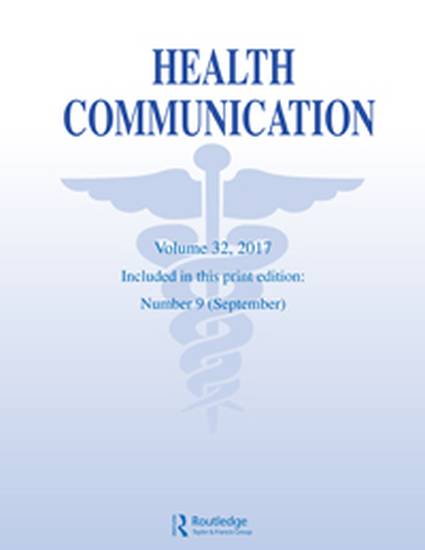
Article
Perceptions of Health Information Seeking and Partner Advocacy in the Context of a Cardiology Office Visit: Connections with Health Outcomes
Health Communication
(2017)
Abstract
This paper explores perceived active health information seeking, informal advocacy by a partner or other, cardiac efficacy, and cardiovascular health indicators for patients surveyed while visiting their cardiologist. Participants include 208 patients with a diagnosed heart condition. Variables include predisposing characteristics (e.g., illness severity, demographics), perceived active health information seeking during an office visit, informal advocacy by partner or other, cardiac efficacy, and cardiovascular health indicators (i.e., basal metabolic index (BMI), total cholesterol, high-density lipoprotein (HDL), low-density lipoprotein (LDL), triglycerides). Data were analyzed using correlations, t-tests, and structural equation modeling. As hypothesized, perceived active health information seeking during an office visit (positively) and informal advocacy by partner or other (negatively) predicted cardiac efficacy. One path was added from active information seeking to BMI. Cardiac efficacy, in turn, significantly predicted total cholesterol and BMI. The model was also replicated for LDLs but not for HDLs or triglycerides. We discuss implications for cardiac disease management.
Disciplines
Publication Date
2017
Citation Information
Maria G. Checton, Kathryn Greene, Amanda Carpenter and Danielle Catona. "Perceptions of Health Information Seeking and Partner Advocacy in the Context of a Cardiology Office Visit: Connections with Health Outcomes" Health Communication Vol. 32 Iss. 5 (2017) p. 587 - 595 Available at: http://works.bepress.com/danielle-catona/3/
